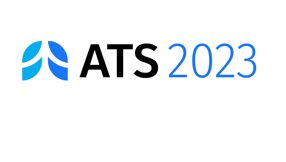AATD is a rare, genetic condition that results in a deficiency of alpha-1 antitrypsin, a protein that protects the lungs against environmental damage as well as against attack by neutrophil elastase, a key enzyme that the body releases during inflammation. Without this protein, or with defective proteins, inflammation has both acute and long-term effects. Over time it can lead to lung damage due to the irreversible destruction of the lungs’ supportive elastic tissues.
In the most severely affected, AATD results in progressive lung disease and deterioration, often starting in early adulthood. People living with AATD experience gradual, irreversible loss of lung function, resulting in early onset emphysema or chronic obstructive pulmonary disease (COPD), even in the absence of smoking. Treatment approaches include avoidance of cigarette smoke, use of inhalers to help control symptoms, and in some cases intravenous infusion of alpha-1 antitrypsin protein. These do not halt disease, and AATD can be life-threatening and lead to the need for a lung transplant. However, a lung transplant does not remove the underlying cause of the disease, and the replacement lungs continue to experience progressive damage and consequent loss of function.
How many people are affected?
AATD is a genetic condition, which runs in families and can be passed on from parents to their children. The most severe form of AATD is found in people who have the “PiZZ” or “NULL” genetic types, which mean that they produce either very low blood levels of either abnormal protein or even no protein at all. There are an estimated 50,000 people with severe deficiency (e.g., “PiZZ” or “NULL”) in North America and some 60,000 in Europe.
Clinical status Alpha-1 Antitrypsin Lung Disease (AATD-LD)
Alvelestat has received U.S. Orphan Drug Designation for the treatment of AATD-LD and Fast Track Designation from the FDA. In January 2025, alvelestat was granted Orphan Designation by the European Commission. European Orphan Designation is awarded to therapeutic candidates targeting the treatment, prevention or diagnosis of life-threatening or chronically debilitating diseases with a prevalence of fewer than 5 in 10,000 people in the European Union. Therapies must provide a potential significant benefit over available therapies.
Press release: Mereo BioPharma Provides Update on Lead Clinical Programs
In the US, following interactions with the FDA; the Division of Pulmonology, Allergy and Critical Care (DPACC); and the Division of Clinical Outcomes Assessment (DCOA), the Company has aligned on a Phase 3 study design using SGRQ Total Score as the primary endpoint with a functional assessment as a key secondary endpoint. At the end of Q2 2024, Mereo submitted the Phase 3 package including the study protocol and initial validation report for SGRQ in AATD to the FDA. If successful, this Phase 3 study is expected to support full regulatory approval in the US.
In Europe, Mereo has received guidance from the European Medicines Agency (EMA) that a Phase 3 primary endpoint of lung density by computed tomography (CT) scan with a relaxed p value (p<0.1) may, if the study is successful, be sufficient for full approval.
Press release: Mereo BioPharma Provides Update on Pipeline Progress and Corporate Developments
Two Phase 2 trials of alvelestat in severe AATD-LD have been completed, ASTRAEUS (NCT03636347) and ATALANTa (NCT03679598). Based on these data, Mereo is preparing to commence a pivotal Phase 3 study evaluating alvelestat (240 mg) compared to placebo.
ASTRAEUS was a randomized double-blind placebo-controlled study in patients naïve to augmentation or following a 6-month wash-out period. ASTRAEUS evaluated two different doses of alvelestat (120 mg bid and 240 mg bid) or placebo, over a 12-week period (at weeks 4, 8 and 12) and the effect on three primary biomarker endpoints associated with AATD-LD: blood neutrophil elastase activity, the elastin breakdown product desmosine and Aα-val360.
A total of 99 patients were enrolled across 26 sites in North America, EU and U.K. and 98 patients were dosed in the study. At the high dose (240 mg), alvelestat demonstrated significant and consistent reductions versus placebo in all three primary biomarkers related to AATD-LD activity in the per protocol population.
Additionally, post-hoc analyses demonstrated the association between extent of biomarker reductions with alvelestat and improvements in a Patient Reported Outcome of the SGRQ-Activity domain.
No serious safety signals were associated with alvelestat. Headache was the most frequent adverse event, generally mild or moderate and resolving on continued dosing. Three cases were reported as serious adverse events (SAEs).
Press release: Mereo BioPharma announces Positive Top-Line Efficacy and Safety Data from “ASTRAEUS” Phase 2 Trial of Alvelestat in Alpha-1 Antitrypsin Deficiency- associated Emphysema
The companion Phase 2 investigator-led ATALANTa study*, led by Professor Mark Dransfield, Director of the Division of Pulmonary, Allergy and Critical Care, University of Alabama at Birmingham (UAB), evaluated the safety and efficacy of alvelestat 120 mg bid or placebo, for 12 weeks, in a broader range of individuals with AATD-LD, including subjects with less severe phenotypes (Pi*SZ), and those receiving augmentation therapy. The study randomized 63 patients, 32 in the 120 mg alvelestat arm (44% on augmentation therapy) and 31 in the placebo arm (48% on augmentation therapy).
The results demonstrated with the 120 mg dose of alvelestat (the low dose used in the Phase 2 ASTRAEUS study) are consistent with those observed in ASTRAEUS on blood neutrophil elastase activity and changes in the biomarkers desmosine and Aα-val360. The data from ATALANTa also show an effect of alvelestat on the SGRQ Total (p=0.10 versus placebo) and reaching significance for SGRQ Activity domain (p=0.01 versus placebo) in patients not on augmentation.
Overall alvelestat was well-tolerated. The most common adverse events were headache/migraines in the alvelestat group and worsening of COPD symptoms in the placebo group.
The data support Mereo’s selection of the 240 mg dose to be studied in the planned Phase 3 pivotal trial and also demonstrate efficacy in SGRQ scores in patients with more preserved lung-disease (a finding also observed in the ASTRAEUS study).
A reduction in acute exacerbations was observed across the Phase 2 studies. When pooling both the ATALANTa and ASTRAEUS studies, 16% of placebo patients had experienced an exacerbation but this was only 9% for patients treated with alvelestat. The reduction in exacerbations was seen across all levels of GOLD severity. Importantly, augmentation therapy has not shown benefit in exacerbations and a meta-analysis of the EXACTLE and RAPID randomised controlled trials showed a significant increase in exacerbation rate compared to placebo, p=0.02.
*The ATALANTa study was funded by the National Center for Advancing Translational Sciences (NCATS) through the National Institutes of Health (NIH)-Industry program for discovering new therapeutic uses for existing molecules.
Publications and posters
Mereo is making data available through publications and posters at medical meetings. Here you can access links to available data:
European Respiratory Congress, 2024:
Efficacy of Alvelestat on SGRQ in Patients with AATD and Mild Airflow Limitation: A Pooled Analysis from two Phase 2 Studies
An analysis of 39 patients with GOLD 1 airflow limitation at baseline in the ASTRAEUS and ATALANTa studies to determine the effect of alvelestat on SGRQ Total and SGRQ Activity domain scores.
No Infection Risk with Alvelestat in Patients with AATD in Two Phase 2 Trials
Presentation of combined safety data from patients in the ASTRAEUS and ATALANTa studies.
American Thoracic Society, 2024:
Alvelestat (MPH966) for the Treatment of ALpha-1 ANTitrypsin Deficiency (ATALANTa): A Phase 2, multicenter, double-blind, randomized, placebocontrolled study to evaluate efficacy, safety, and tolerability of alvelestat in alpha-1 antitrypsin deficiency
An investigator-led Phase 2 study investigating the mechanistic effect and safety of alvelestat in AATD (ATALANTa).
Association of Biomarker Suppression with SGRQ and CAT in Patients with AATD Treated with Alvelestat: Results from the Treatment of Alpha-1-ANTitrypsin Deficiency (ATALANTa) Study
A planned post-hoc analysis examining the association of SGRQ Total score and CAT score with biomarker response in the ATALANTa study.
American Thoracic Society, 2023:
Analysis from Phase II clinical trial, Alvelestat, NE (neutrophil elastase) inhibitor in AATD-LD: Correlation between biomarker response (Desmosine and Aa-Val 360 ) and Clinical Outcome (SGRQ)
Analysis of data from ASTRAEUS to investigate the association between a reduction in disease activity biomarker responses and the SGRQ Activity domain to support clinical trial design.
Alvelestat: An Oral Neutrophil Elastase (NE) Inhibitor In Alpha-1 Antitrypsin Deficiency (AATD): Results Of A Phase II Trial (ASTRAEUS)
A Phase 2 study investigating the mechanistic effect and safety of alvelestat in AATD (ASTRAEUS).







